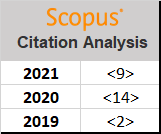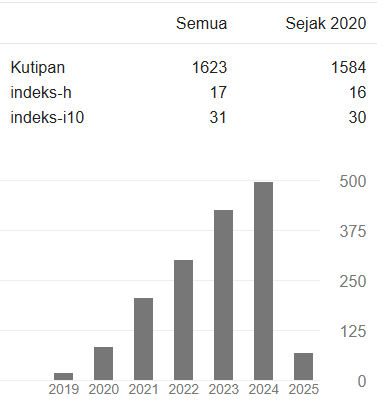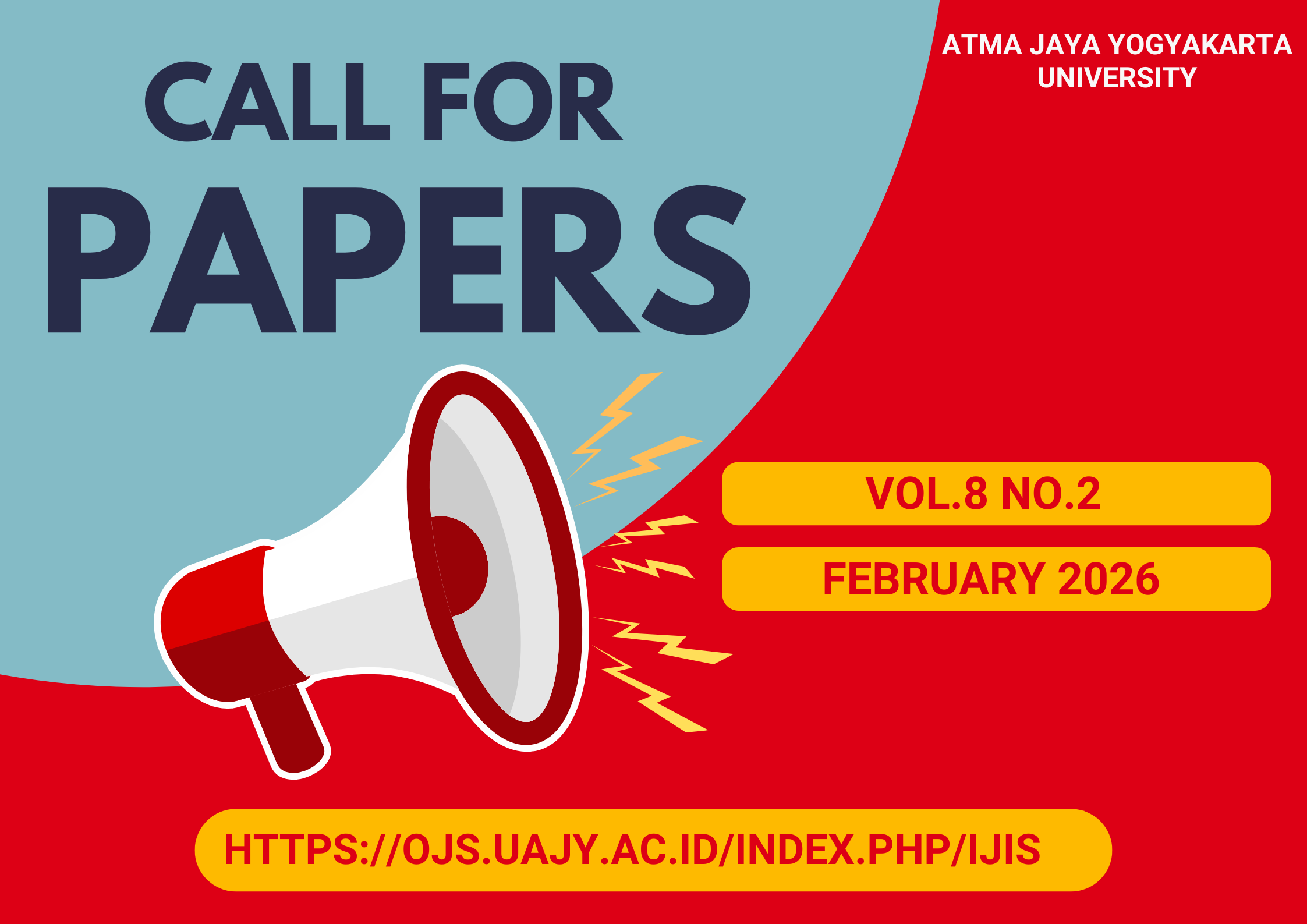Promoting Active Learning for Increasing Students’ Understanding of the Teaching Materials: A Report on Teaching Experience in Computer Science
DOI:
https://doi.org/10.24002/ijis.v3i1.3603Keywords:
active learning, student centered learning, computer science education, information systems education, higher educationAbstract
Knowledge gap among students is one of the challenges in teaching-learning process. Active learning can be one possible way to the solution, as study shows that active learning increase students’ achievement. Knowledge transfer between peers can have its place in an active class, since group discussion is part of the class design. We have been applying active learning in our classes where students were invited to teach in small groups or in class. In this paper we share about our experience in designing and implementing active learning strategies in our classes. After witnessing students’ success through active learning, we conducted a study to gain students feedbacks about the positive impacts of the active learning to their understanding of the teaching material. Thirty-six students fill out the questionnaire in Google Form anonymously. The result shows that our class settings that employ active learning increases students’ understanding of the teaching materials and hence, students’ grade. Over 93% give positive feedback about our class design and implementation. Students also give positive feedback about our personalized teaching and personal approach during the group activity in our classes. We conclude that class designs which incorporate active learning, is beneficial for students to increase their understanding of the teaching materials.References
A.Srinath, “Active Learning Strategies: An Illustrative Approach to Bring out Better Learning Outcomes from Science, Technology, Engineering and Mathematics (STEM) Students ” , iJET ‒ Volume 9, Issue 9: "Blended Learning", 2014.
Dahlgren, M.A., and Dahlgren,, L.O. “Portraits of PBL: Students' experiences of the characteristics of problem-based learning in physiotherapy, computer engineering and psychology”, Instructional science, (30), 2, 111-127. http://dx.doi.org/10.1023/A:1014819418051, 2002.
Freeman, S., Eddy, S.L., McDonough, M., Smith, M.K., Okoroafor, N., Jordt, H., Wenderoth, M.P., (2014). Active learning increases students’ performance in science, engineering, and mathematics. Proceedings of the National Academy of Sciences of the United States of America June 10, 2014 111 (23) 8410-8415, 2014
Gurung, R.A.R. and Voelker D.J., (Editors), “Big Picture Pedagogy: Finding Interdisciplinary Solutions to Common Learning Problems, New Directions for Teaching and Learning”, Number 151. Fall 2017. Josse-Bass, A Wiley Brand, 2017
Komarraju, M. & Nadler, D. (2013). Self Efficacy and Academic Achievement: Why do implicit beliefs, goals, and effort regulation matter? Learning and Individual Differences 25, 67–72, 2013.
Owens, M.T., and Tanner K.D, “Teaching as Brain Changing: Exploring Connections between Neuroscience and Innovative Teaching. Approaches to Biology Teaching and Learning.” CBE Life Sciences Education 16: fe2, summer, 2017.
Woolfson, L.M, “Educational Psychology, The impact of psychological research on education”, Pearson Education Limited. ISBN: 978-0-273-72919-8, 2011
Susanna Hartikainen, Heta Rintala, Laura Pylväs, and Petri Nokelainen, “The Concept of Active Learning and the Measurement of Learning Outcomes: A Review of Research in Engineering Higher Education”, Educ. Sci. 9, 276; doi:10.3390/educsci9040276., 2019
Andreas Schäfer, Jan Holz, Thiemo Leonhardt, Ulrik Schroeder, Philipp Brauner & Martina Ziefle “From boring to scoring – a collaborative serious game for learning and practicing mathematical logic for computer science education”, Computer Science Education, 23:2, 87-111, DOI: 10.1080/08993408.2013.778040 , 2013
Natalie Wilde and Anne Hsu, “The influence of general self-efficacy on the interpretation of vicarious experience information within online learning”, International Journal of Educational
Technology in Higher Education 16:26, 2019
Linda Zientek, Jennifer Dorsey, Nancy Stano, Forrest C. Lane, “An investigation of self efficacy of students enrolled in a mathematics pathway course”, Journal of Applied Research in
Higher Education Vol. 11 No. 3, 2019 pp. 636-652 , 2019
Bandura, A. “Self-Efficacy: The Exercise of Control”, W.H. Freeman and Company, New York, NY. , 1997
Ozkal, N. “Relationships between self-efficacy beliefs, engagement and academic performance in math lessons. Cypriot Journal of Educational Science”. 14(2), 190–200, 2019
Bandura, A. (1994). Self-efficacy. In V. S. Ramachaudran (Ed.), Encyclopedia of human behavior (Vol. 4, pp. 71-81). New York: Academic Press. (Reprinted in H. Friedman [Ed.], Encyclopedia of mental health. San Diego: Academic Press, 1998).
Ayllon S, Alsina A, Colomer J, “Teachers’ involvement and students’ self-efficacy: Keys to achievement in higher education. PLoS ONE 14(5): e0216865. https://doi.org/10.1371/
journal.pone.0216865, 2019
Turner, J.C. & Reynolds, Katherine. “Self-categorization theory. Handbook of theories in social psychology”, doi: 10.4135/9781446249222.n46., 2012
Katelyn M. Cooper, Brian Haney, Anna Krieg, and Sara E. Brownel, “What’s in a Name? The Importance of Students Perceiving That an Instructor Knows Their Names in a HighEnrollment Biology Classroom”, CBE—Life Sciences Education • 16:ar8, 1–13, Spring 2017.
Kimberly D. Tanner, “Structure Matters: Twenty-One Teaching Strategies to Promote Student Engagement and Cultivate Classroom Equity”, CBE—Life Sciences Education Vol. 12, 322– 331, Fall 2013.
Downloads
Published
How to Cite
Issue
Section
License
Indonesian Journal of Information Systems as journal publisher holds copyright of papers published in this journal. Authors transfer the copyright of their journal by filling Copyright Transfer Form and send it to Indonesian Journal of Information Systems.

Indonesian Journal of Information Systems is licensed under a Creative Commons Attribution-NonCommercial 4.0 International License.

















